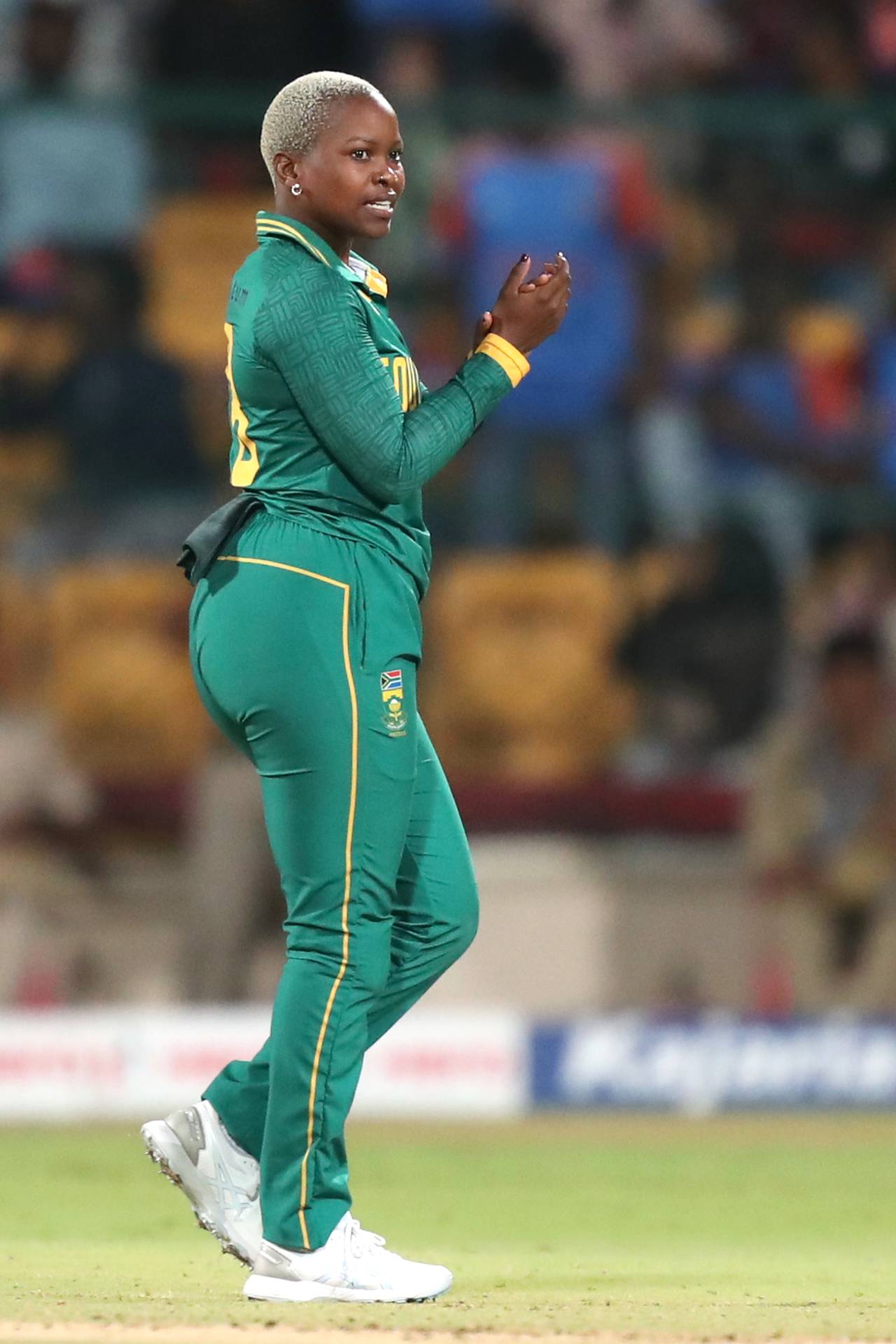

Nonkululeko Mlaba`s celebratory gesture led to a demerit point, sparking debate on sportsmanship.
In the high-stakes arena of the Women`s World Cup, where every run, every wicket, and every decision can alter the course of a nation`s sporting destiny, a seemingly minor gesture recently captured significant attention. Nonkululeko Mlaba, the talented left-arm spinner for South Africa, found herself on the receiving end of a disciplinary action from the International Cricket Council (ICC), not for a technical error or an aggressive outburst, but for a simple “wave goodbye” to a dismissed batter.
The incident, occurring during a thrilling match against India, brought into sharp focus the intricate balance between passionate celebration and the stringent demands of professional sportsmanship as defined by the ICC`s Code of Conduct. It`s a reminder that in elite cricket, even the most fleeting expression can carry a significant penalty.
The Incident: A Hand Gesture Under Scrutiny
The moment of contention unfolded in the 17th over of India`s innings. Mlaba, having successfully dismissed India`s Harleen Deol, executed what many might consider an instinctive, albeit brief, celebratory wave towards the departing batter. While the joy of a wicket in a crucial World Cup fixture is entirely understandable, Mlaba`s gesture was immediately flagged by match officials. She was subsequently charged with breaching Article 2.5 of the ICC Code of Conduct for Players and Player Support Personnel.
Article 2.5 specifically targets “using language, actions or gestures which disparage or which could provoke an aggressive reaction from a batter upon his/her dismissal during an International Match.”
The implication is clear: even if unintended, Mlaba`s wave was interpreted as having the potential to `provoke an aggressive response.` It`s a fine line indeed, separating exuberance from what is deemed inappropriate conduct, especially when emotions run high.
Decoding the Demerit Point System
For her transgression, Mlaba was handed an official reprimand and one demerit point. While a single demerit point might seem a trivial penalty, it operates within a cumulative system designed to keep players accountable over a 24-month period. Accumulate four or more demerit points within this timeframe, and a player faces a suspension – one Test match, or two One Day Internationals, or two T20 Internationals, whichever comes first.
This system acts as a persistent reminder, a Sword of Damocles, if you will, hanging over every player. It compels them to exercise continuous caution, ensuring that spontaneous reactions, however innocent they might appear, do not inadvertently lead to bans that could impact critical matches or even their careers. Mlaba`s swift admission of the offence and acceptance of the sanction by match referee Trudy Anderson underscores the clarity of the rules and the player`s responsibility to adhere to them.
Sportsmanship vs. The Heat of the Moment
This incident sparks a wider conversation about the spirit of the game versus the letter of the law. Cricket, often lauded for its `gentlemanly` roots, has evolved into a fiercely competitive global sport. While passion is a driving force, maintaining respect and decorum remains paramount. Officials, including on-field umpires Jacquline Williams and Kim Cotton, third umpire Candace le Borde, and fourth umpire Sue Redfern, are tasked with the unenviable job of interpreting these rules in real-time, under pressure.
Was Mlaba`s wave truly `disparaging` or `provocative`? From a purely technical standpoint, the ICC`s rules cast a wide net to prevent any actions that might incite tension or disrespect. It’s a mechanism to ensure that the competitive fire does not ignite into unsportsmanlike conduct, preserving the game’s integrity for players and fans alike. In essence, while Mlaba may have simply been expressing her elation, the rulebook leaves little room for ambiguity in such matters.
The Broader Picture: A Win Amidst Controversy
It’s worth noting that this disciplinary action occurred against the backdrop of a significant victory for South Africa. They clinched a thrilling chase against India, surpassing a target of 252 runs to secure their second win in three World Cup games. Mlaba herself played a crucial role in that success, contributing with figures of 2 for 46, highlighting her value to the team.
This context adds another layer to the incident. In moments of intense pressure and high stakes, the natural human reaction to success can sometimes brush against the strict boundaries of official conduct. It serves as a stark reminder that in professional sport, athletes are not only judged on their performance but also on their demeanor, requiring them to be paragons of composure even in their most triumphant moments.
Conclusion: A Lesson in Restraint
Nonkululeko Mlaba`s demerit point for a wave goodbye is more than just a footnote in a World Cup match report. It`s a vivid illustration of the meticulous standards of conduct expected from elite cricketers. It emphasizes that while the game thrives on passion and competitive spirit, it also demands an unwavering adherence to rules designed to maintain sportsmanship and respect, ensuring that celebrations remain within the bounds of decorum. For players, it`s a persistent, sometimes subtle, lesson in restraint, even when their hearts are soaring with joy.











